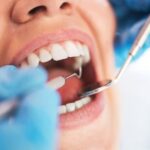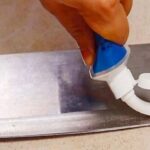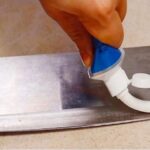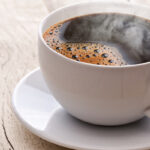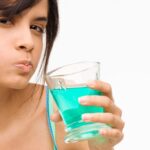Don’t Brush Your Teeth Immediately After Breakfast
While it’s a common practice to brush your teeth right after breakfast to freshen your mouth, Dr. Ravanbakhsh advises against it. Acidic foods like orange juice or toast can weaken tooth enamel, and brushing immediately afterward can cause further damage.
He recommends brushing your teeth in the morning before breakfast to remove plaque and bacteria that accumulated in your mouth during sleep. In fact, brushing before breakfast better protects your enamel and stimulates saliva production, aiding in food breakdown.
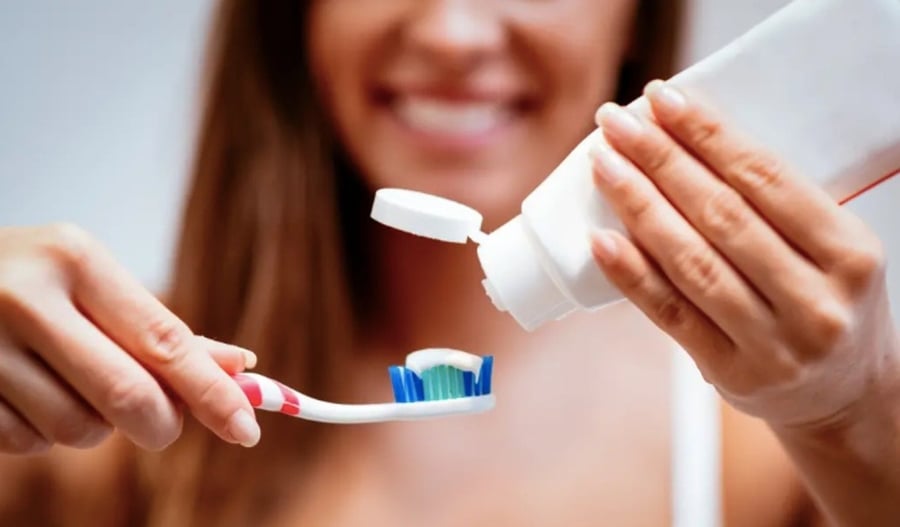
If you can’t brush before eating, at least wait for 30 to 60 minutes after breakfast to protect your enamel. During this time, you can use a mouthwash to prevent bacteria and food remnants from clinging to your teeth.
Dr. Shaadi Manouchehri explains that when we eat, our mouths become acidic as bacteria digest the food, lowering the pH level in the mouth. Brushing immediately after eating will scrub this acid onto your teeth, potentially damaging the enamel. Hence, waiting for about 30 to 60 minutes after eating before brushing is prudent advice.
Dr. Jiang concurs, stating that waiting 30 minutes to brush after eating is a sound guideline. During this time, drinking water or rinsing your mouth can help dislodge food stuck on your teeth and gums without harming your enamel.
Don’t Rinse Your Mouth Right After Brushing
Many people have the habit of rinsing their mouths immediately after brushing, but Dr. Ravanbakhsh discourages this as it can reduce the effectiveness of the toothpaste. Rinsing right away washes away fluoride, which helps prevent cavities and other issues.
He suggests waiting for at least 10 to 15 minutes before rinsing or drinking anything to let the fluoride settle and strengthen your enamel.

Brushing Your Teeth Too Hard
“Brushing harder does not mean you’re cleaning your teeth better. On the contrary, it can damage your teeth and gums,” warns Dr. Ravanbakhsh.
The expert recommends using a soft-bristled toothbrush or an electric toothbrush for safe and effective cleaning. If the bristles become frayed, it’s a sign that you’re brushing too vigorously.
A simple technique to reduce brushing force is to hold the toothbrush with just three fingers. This helps maintain a lighter touch compared to using your entire wrist, thereby better protecting your teeth and gums.
Thinking That Brushing Is Enough
Dentists always emphasize the importance of flossing, and for good reason.
“You should floss once a day. Some studies show that flossing before brushing can help remove more plaque,” explains Dr. Ravanbakhsh.
Flossing not only helps dislodge food particles and improves your breath but also plays a crucial role in cavity prevention. Additionally, rinsing your mouth after each meal is a good way to dislodge food remnants, but remember to wait for at least 10-15 minutes before doing so.
Improper Brushing Technique
Even if you think your brushing method is effective and harmless, you may be overlooking important aspects.
According to dentists, brushing your teeth with broad horizontal strokes from left to right is not recommended. Instead, focus on each tooth and gently massage it with a back-and-forth or circular motion. Holding the toothbrush at a 45-degree angle helps you effectively reach all areas of your mouth. And don’t forget your tongue—brushing it is essential for removing bacteria and improving your breath.
The Magic of Toothpaste on a Knife: A Surprising Revelation
Over time, knives become dull, losing their shine and becoming stained. This is a frustrating issue for any chef or home cook. However, there is a surprising solution to this problem: toothpaste. Yes, the same toothpaste you use to brush your teeth can be used to restore the shine and sharpness of your knives. This simple trick can make a huge difference in the kitchen, and it’s a great way to give your knives a new lease of life.
The Ultimate Guide to Mouthwash: Everything You Need to Know
When using mouthwash, it is important to keep a few key considerations in mind. Mouthwash is a powerful oral hygiene tool, but if used incorrectly, it can do more harm than good. By following a few simple guidelines, individuals can ensure they are using mouthwash safely and effectively, maximizing oral health and getting the most bang for their buck.
























